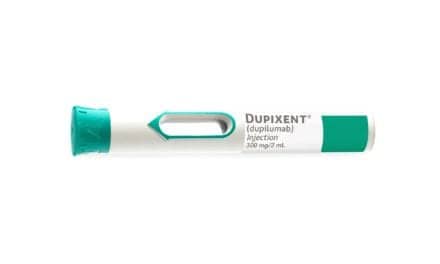A pooled analysis of data from the two replicate Phase III INPULSIS trials and the Phase II TOMORROW trial show a positive trend toward a reduction in all-cause and respiratory mortality in patients with idiopathic pulmonary fibrosis (IPF) who were treated with nintedanib.
Results were presented September 24 at the 18th International Colloquium on Lung and Airway Fibrosis (ICLAF) held in Quebec, Canada.
Nintedanib is an investigational small molecule tyrosine kinase inhibitor (TKI) in development by Boehringer Ingelheim for idiopathic pulmonary fibrosis (IPF). It targets growth factor receptors, which have been shown to be potentially involved in pathomechanisms of pulmonary fibrosis, most importantly the platelet-derived growth factor receptor (PDGFR), fibroblast growth factor receptor (FGFR) and vascular endothelial growth factor receptor (VEGFR). By blocking the signaling pathways that are involved in fibrotic processes, it is believed that nintedanib* has the potential to reduce disease progression in IPF by slowing the decline of lung function, according to Boehringer.
Over 52 weeks, the results of the pooled analysis showed:
- A 30% relative risk reduction in all-cause mortality with nintedanib vs. placebo (5.8% vs. 8.3%)
- A 38% relative risk reduction in respiratory mortality with nintedanib vs. placebo (3.6% vs. 5.7%)
Analyses of the pooled INPULSIS™ trials show that nintedanib* consistently slowed disease progression by significantly reducing the annual rate of decline in FVC compared with placebo.3 It also slowed lung function decline even in the presence of emphysema that had been identified by high-resolution CT (HRCT) at baseline, according to Boehringer.
“Clinical trials of nintedanib* have consistently found that it slows disease progression for patients with IPF. This new analysis shows it may reduce mortality as well,” said Dr Martin Kolb, Director of Respirology and Research Director, Firestone Institute for Respiratory Health, and Associate Professor of Medicine, McMaster University. “This is encouraging news, as treating this deadly disease can be a challenge; more effective treatments are needed.”
About 50% of people with IPF die within two to three years of diagnosis. It causes progressive scarring of the lungs, resulting in continual and irreversible deterioration in lung function and difficulty breathing. Currently, there are very few treatment options.










